 A reminder that the Smart Cities Initiative launch event, today the 21 June 2011, will be broadcast online. At a later stage, this initiative may evolve into a European Innovation Partnership (EIP). Topics on Smart Cities are expected to be included in the 2012 Work Programme in the FP7 Co-operation Energy Theme, which is expected to be published on 20 July 2011. Those who are interested in applying for future ‘Smart Cities and Communities’ calls for proposals might wish to check the participant list for possible project partners.
A reminder that the Smart Cities Initiative launch event, today the 21 June 2011, will be broadcast online. At a later stage, this initiative may evolve into a European Innovation Partnership (EIP). Topics on Smart Cities are expected to be included in the 2012 Work Programme in the FP7 Co-operation Energy Theme, which is expected to be published on 20 July 2011. Those who are interested in applying for future ‘Smart Cities and Communities’ calls for proposals might wish to check the participant list for possible project partners.
/ Full archive
Like our posts? Then share them on Twitter!
 If you’d like to share any of the posts on the Blog with networks, colleagues, friends, the public, you can now do this quickly and easily on Twitter via our new TweetMeme plugin.
If you’d like to share any of the posts on the Blog with networks, colleagues, friends, the public, you can now do this quickly and easily on Twitter via our new TweetMeme plugin.
If you have a Twitter account then you can share a post by simply clicking on the TweetMeme logo (like the one on the left). The TweetMeme logo is found at the end of every blog post. This will retweet the story via your Twitter account.

Sharing posts via Twitter helps to promote the excellent work going on at BU and can also help you to establish networks with likeminded people.
This is in addition to the ‘Like’ functionality via Facebook that we have had available on the Blog for a couple of months now.
Developing a successful Research Centre at BU!

We recently visited the Design Simulation Research Centre in DEC and were really impressed with the passion and enthusiasm that the staff and students demonstrated for research. The Centre has recently won the Vice-Chancellor’s award for the best Research/Enterprise Project. We asked Research Centre Director Prof Siamak Noroozi to write a blog post about how this magic happens and a successful Research Centre grows and develops…
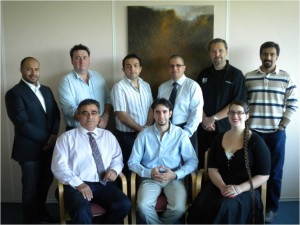 Starting from zero.
Starting from zero.
I did not come to BU to continue with my old research. I came here to develop research that underpins what DEC School is about and to create something that is both interesting and challenging both to me as well as everyone else in my centre.
How did I do it? And was I successful?
I have come to the conclusion that everyone has a certain natural ability in something. For example, one can be natural at sport or art or music, maths, engineering, DIY, medicine, science, management, leadership, etc. Whatever that natural ability is, if identified and nurtured properly it can change the person’s quality of life. Not everyone is a natural research scientist, even if that person is working in an academic institution or has a PhD. In the past 30 years I have seen many reasons why people engage with research. Sometimes it is because they are creative, driven and passionate about it. And, sometimes the pressure of competitive academic life and challenges that come with that!
I found it hard to engage people with a PhD in research that is outside their comfort zone or their PhD topic, but I quickly noticed that within my team there are people with a variety of skills or natural abilities. These abilities were ranging from Implementers, Co-ordinators, Shaper, Resource investigators, Evaluators, Team-workers or Completers/Finishers, etc. However there were not many Planters. By Planters I mean those who could see beyond their PhD who could create projects that are outside their comfort zone. Those who could create new research aligned with experiences, skills or background of other rather than their own. In other words develop different applications of the original research. This is particularly needed to ensure staff without PhD can engage and register for a PhD. Also to make sure projects do not to re-invent the wheel or, as one may put it, search about nothing.
I realised that research does not take place without PhD students (or legs on the ground) so I had to quickly expand our pool of research students and to team them up with different members/group of staff in my team. I had to engage staff in live PhD projects. This was important as their transferable skills was needed to help students to identify and develop their new and novel PhD project proposals, so that everyone in the team could identify with and was aligned or linked to the individual’s background. That resulted in Projects that everyone could get their teeth into and develop a sense of ownership of the original idea. Also to make sure projects have functional outcomes that inform and under-pin what we teach or that we wish to develop in terms of skill-sets or natural abilities.
Who are the people?
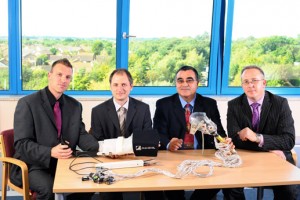 Of those involved in research, some are resourceful, creative and can develop new research ideas. Some do it by joining others or managing other people’s research ideas. But some just can’t engage with research full stop. Why? I do not know. Maybe because they need to be told how, and in research no one can. Also personality may have a lot to do with it. So you come to realise that everyone has a different view or definition of what research or research activities is all about.
Of those involved in research, some are resourceful, creative and can develop new research ideas. Some do it by joining others or managing other people’s research ideas. But some just can’t engage with research full stop. Why? I do not know. Maybe because they need to be told how, and in research no one can. Also personality may have a lot to do with it. So you come to realise that everyone has a different view or definition of what research or research activities is all about.
So what is all this?
So this blog post is not about who is right or wrong. It is about me having a vision of starting a research centre from scratch, and with limited or no financial resources. Having to find funds or sponsors to get the badly needed PhD students, who are essential to get the job done. To enable a diverse group of people all with different ambitions, agendas, interests, natural abilities and passion to form small research teams and collectively engage with research management, supervision and meetings. To bring about an atmosphere where everyone willingly participate in challenging research that is sometimes, or in most cases, outside their comfort zone. To help them develop their confidence in their ability to lead, manage and deliver on the research objectives and also contribute as a team member.
This is about delivering on my vision which was to ensure:
- All academics in my centre are research active (if they are willing),
- That we had the research students to satisfy the needs of all the members of the team I inherited,
- Support exists for a diverse range of funded/sponsored research projects.
This was also about:
- Identifying the needs, abilities and strength of the members of my team and exploit them in a positive way to bring about the necessary changes.
- Showing how one’s passion and natural ability in research generation & research informed teaching can quickly result in the creation of a range of diverse and sustainable research activities, all underpinned and based around the expertise of individual staff.
- My effort to develop a strong and vibrant and sustainable research infrastructure. An environment that is open, forward looking, supportive.
- A centre that provides opportunities for everyone to engage with research in one form or other.
- It is about developing projects that are challenging and have strong industrial or commercial relevance,
projects that push the boundaries of science and engineering by engaging both staff and students in ground breaking research in all aspects of applied design, innovation, engineering and technology. - Developing credibility, respect and competence to engage with our customers who are the end users of our research outputs.
- Developing collaboration with large international companies through CPD or industrial research collaboration that bring with it financial security as well as sustainable KT & TT activities between University and industry.
As I was working in a design school, the generic research to underpin design was a must in my book. So it was also about searching relentlessly to secure fully funded research students willing to work in this areas and to initiate different lines of research that underpin generic design.
The people in my research centre have different academic backgrounds so I tried to create a multidimensional research centre that allowed everyone to engage and participate in research and be able to contribute. I relentlessly pushed and encouraged people to write bids and apply for research funding. In one area where we had the most amount of track record we developed and submitted a substantial number of bids to various research councils and funding institutions such as the EPSRC, the NIHR, the Leverhulme, the RAE etc. This was quite a hard work and not often successful. It also had a negative effect on my personal profile in terms of actual research and publication but it had to be done.
What is happening now?
I am now enjoying fruits of my labours, watching how research and the sense of research ownership has empowered individual colleagues and transformed their academic life. I see them becoming more and more confident, innovative and dynamic with their ideas. I see how it informs their teaching and teaching material development. I enjoy watching them engaging in heated research discussions, disputes or debates which is necessary, informative, motivating, satisfying and educational all at the same time. I think most people in my team appreciate now what research can do for them.
We realise that our PhD’s, when we did them, were the state of the art at that time. But 10 or 20 years later, things have changed and moved on so we must change and move on with it. We have also realised that we learn the most when we are challenged. So taking on challenges is needed if one is to remain up-to-date, relevant and skilled. Only then, as academics, can we educate and equip our students with transferable skills that are relevant, modern and continually evolving. So we are the key in creating talented professionals who can secure the future of this country, through sustainable innovation and the export of manufactured goods.
Research is not just about digging out historical data or creating strong justification. Facilitating research provision and enabling engagement in research activity and creating new and valid and relevant lines of research itself is an art or a natural ability. It is not a project management exercise. It needs experience, insight, vision and passion and not just some basic scientific knowledge, which we all have. You need to be able to translate the ideas or visions into sequential activities that bring about changes in the form of knowledge generation, scientific or technological discoveries and their transfer. Some times this relies on intangible things such as instinct or common sense. A very structured, methodical and sequential person will find research hard and slow and frustrating. But as a team that complements each other it can succeed and we have a lot of examples and success stories that I look forward to sharing with you in the future.
A new story and just off the press.
I recently found out that we have been nominated for the VC award. I attended the ceremony and I was even more surprised when I saw just my name appearing on the list. When I was reminded not to get excited and not to say too much if I win, I became even more nervous and as a result forgot to thank those who are instrumental for us to achieve this. So I would like to thank Philip Sewell, who keeps me on the straight and narrow and without whom I could not do any of this. Prof John Vinney who started this project when we were in Bristol. Also I like to thank Bryce Dyer for his passion for success, drive, enthusiasm and support. As a centre/team (those engaged in research) we all complement each other very nicely and together we are a strong team. That is why we have done well in such a relatively short time.
But most of all, I like to say this is not about just me. This is about all of us as a team (both staff and students). Every day I feel the Buzz in the atmosphere of my research centre and that stems from the diversity of our research projects and our research students for their passion, drive and their sense of ownership of their project. and I love it.
To finish off, I like to say blogging or giving public speeches or addressing huge audiences or writing excessively! are not in the list of my natural abilities. So I hope I have not let the side down by all this.
End of Blog 🙂
Update on the Collaboration Tools for Academics project
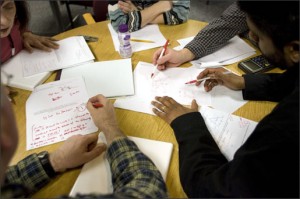 This is an update on the ‘Collaboration Tools for Academics’ project that many of you will have contributed to. The project is being run by Amina Uddin, Steve Webster, Matthew Bennett, Julie Northam, Alan Fyall, Sarah Hearn and Clive Andrews on behalf of the academic community as a whole. The project seeks to deliver a set of useful services that have been identified by the academic/research community as the most useful in supporting collaborative work whether it be for education or research.
This is an update on the ‘Collaboration Tools for Academics’ project that many of you will have contributed to. The project is being run by Amina Uddin, Steve Webster, Matthew Bennett, Julie Northam, Alan Fyall, Sarah Hearn and Clive Andrews on behalf of the academic community as a whole. The project seeks to deliver a set of useful services that have been identified by the academic/research community as the most useful in supporting collaborative work whether it be for education or research.
A service proposal document produced by the project after several iterations is available on the I drive at “I:\CRKT\Public\Research Blog Docs\CTA Candidate Service Proposals 280411.pdf”. It shows you the set of candidate services that the academic community suggested and explains how we got there. The final section of the document promises a survey to validate the priorities of these services, this has now been completed – thanks to those of you who took part. The results of this survey demonstrate where there is most concern and interest in support.
| Service | Weighting |
| Install of non-standard software | 392 |
| Moving large files externally | 296 |
| Questionnaire software | 293 |
| Blogs and Wikis | 236 |
| Guidance and advice on cloud options | 222 |
We are currently specifying these services in detail and trying to estimate the amount of work required to deliver them in order to plan their implementation. The project has come a long way since it started with the focus being on creating a tool to enable academics at BU to collaborate with one another more effectively, perhaps via some form of ‘facebook for academics’. On careful analysis this requirement can be meet by existing services available within the cloud or already available at BU. The issue was more around documentation and support for some of these services.
We also have put a lot of emphasis on the importance of being able to find collaborators at BU – the find a colleague or expert functions. We see these as vital to unlocking the intellectual capital at BU but they have been picked up via other projects, namely the publication management system and the new content management system for our web site. By the early autumn the find an expert or colleague functions will be enabled allowing you to search for potential colleagues or information within BU more effectively. The Research Ontology is critical here – effectively the keywords by which we will classify our expertise and interests – and avid readers of the blog will see that we have been consulting on this recently to get your views.
EU funding for studies on racist and xenophobic behaviour
 Funding is available for a study on the legal and institutional framework adopted in the EU member states on racist or xenophobic hate speech and on hate crime based on a racist or xenophobic motivation, and on the application of such a framework. Funding is worth up to €250,000 over nine months; see the website for more information.
Funding is available for a study on the legal and institutional framework adopted in the EU member states on racist or xenophobic hate speech and on hate crime based on a racist or xenophobic motivation, and on the application of such a framework. Funding is worth up to €250,000 over nine months; see the website for more information.
PraxisUnico News from Conference 2011 – Opportunities in a Changing Landscape
![]() Read the highlights from this years recent Praxisunico Conference 2011 in their conference newspaper.
Read the highlights from this years recent Praxisunico Conference 2011 in their conference newspaper.
Trying to define digital economy
At a recent meeting which John Oliver arranged we tried to define some key terms for the creative and digital theme and the inital viewpoint was that the ‘digital economy’ was a narrower definition focusing mainly on enterprise and ‘doing’, however this definition of the digital economy from the The Research Council UK is broader: “the novel design or use of information and communication technologies to help transform the lives of individuals, society or business (RCUK website accessed February 2011).”
AHRC to hold four broadcast media training events in July and September 2011
 Following on from the recent AHRC/Radio 3 New Generation Thinkers pilot scheme and the over-subscribed AHRC Broadcast Media workshops , the AHRC will be running four further broadcast media training events across the UK in July and September 2011.
Following on from the recent AHRC/Radio 3 New Generation Thinkers pilot scheme and the over-subscribed AHRC Broadcast Media workshops , the AHRC will be running four further broadcast media training events across the UK in July and September 2011.
These events will allow early career researchers in the arts and humanities to benefit from a day of radio/broadcast training.
Each workshop will be led by at least three production and editorial staff from national broadcasters, including Radio Five.
Each day-long workshop will consist of:
· an introduction to programme-making;
· what you need to do to become the expert that programme producers will value;
· best practice tips based on experiences of academics already successful in broadcast media;
· developing and pitching your programme idea based on your research
· one to one sessions with a broadcaster for those who want detailed feedback on their programme idea.
With each workshop having only forty spaces available we will be allocating those spaces to the first forty people to email applying for a space. The four workshops will take place as follows:
1 – London July 8th
2 – Northumbria University July 11th
3 – London September 16th
4 – Manchester Metropolitan University September 19th
To apply to attend one of these workshops you need to email Jake Gilmore (j.gilmore@ahrc.ac.uk) and put your preferred venue and date in the subject line e.g. London July 8th.
Funding for optimising outcomes for victims of violence, trauma and abuse announced
 DoH invites applications for research on optimising outcomes for victims of violence, trauma and abuse. This aims to encourage research that supports the policy intention to improve outcomes for victims, stimulate collaborations between policy, research and informatics communities, and generate evidence to optimise outcomes for users of health and care services. The total budget is £1.8 million; see the website for more details.
DoH invites applications for research on optimising outcomes for victims of violence, trauma and abuse. This aims to encourage research that supports the policy intention to improve outcomes for victims, stimulate collaborations between policy, research and informatics communities, and generate evidence to optimise outcomes for users of health and care services. The total budget is £1.8 million; see the website for more details.
Funding for CO2 storage, security, rural policy, climate adaptation and climate policy
 Climate Action funding is available for a range of tenders, relating to the geological storage of CO2, security measures used by the financial sector, the optimal development of rural policy, EU strategies for climate change adaptation and policy development and assessment in relation to climate change. Funding is worth up to €230,000 over 36 months for CO2 storage proposals, up to €250,000 over six months for financial sector studies, up to €400,000 over 12 months for rural projects, up to €700,000 over 15 months for climate change adaptation and up to €2.5 million over 12 months for climate policy actions.
Climate Action funding is available for a range of tenders, relating to the geological storage of CO2, security measures used by the financial sector, the optimal development of rural policy, EU strategies for climate change adaptation and policy development and assessment in relation to climate change. Funding is worth up to €230,000 over 36 months for CO2 storage proposals, up to €250,000 over six months for financial sector studies, up to €400,000 over 12 months for rural projects, up to €700,000 over 15 months for climate change adaptation and up to €2.5 million over 12 months for climate policy actions.
Prof Rudy Gozlan – ‘A Fish Tale, World Preservation and You’
Last month Rudy Gozlan gave an inaugural lecture as part of BU’s Public Lecture series. He discussed the biggest issue in ecology right now – how we going to accommodate another 3 billion people on this planet in the next 40 years. Watch Rudy’s lecture (‘A Fish Tale, world preservation and you’) on this subject here: httpv://youtu.be/kK3IsaZ2FYc
EU funding for water, energy and land use statistics
 Eurostat invites proposals for a range of tenders exploring statistics in relation to water use in developing countries, agro-agricultural land use, national statistical systems and energy. Funding is worth up to €100,000 over 12 months for water statistics projects, €10.7 million over 21 months for land use projects and €75,000 over 12 months for NSS research. For energy research up to €300,000 over 12 months is available, divided into three contracts, or up to €270,000 over 30 months, divided into three contracts, depending on the lot selected. View the full details for these calls by performing a Funding Search for 1162932, 1162933, 1162934 or 1162955 in the Full Text field.
Eurostat invites proposals for a range of tenders exploring statistics in relation to water use in developing countries, agro-agricultural land use, national statistical systems and energy. Funding is worth up to €100,000 over 12 months for water statistics projects, €10.7 million over 21 months for land use projects and €75,000 over 12 months for NSS research. For energy research up to €300,000 over 12 months is available, divided into three contracts, or up to €270,000 over 30 months, divided into three contracts, depending on the lot selected. View the full details for these calls by performing a Funding Search for 1162932, 1162933, 1162934 or 1162955 in the Full Text field.
The Public Value of the Humanities
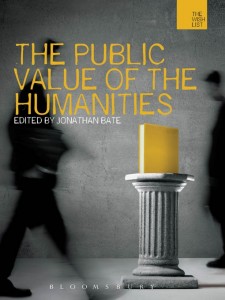 Demonstrating the public value of research will be a significant part of the forthcoming REF exercise. Most major funding bodies now require an impact statement as part of the application process. Universities are being required to demonstrate that their research offers value for money and tangible benefits outside of the academic sphere. This is easier in some disciplines than others, with many people believing the arts, humanities and social sciences (AHSS) will struggle to demonstrate impact.
Demonstrating the public value of research will be a significant part of the forthcoming REF exercise. Most major funding bodies now require an impact statement as part of the application process. Universities are being required to demonstrate that their research offers value for money and tangible benefits outside of the academic sphere. This is easier in some disciplines than others, with many people believing the arts, humanities and social sciences (AHSS) will struggle to demonstrate impact.
The Public Value of the Humanities, recently published by Bloombury Academic and edited by Prof Jonathan Bate (University of Warwick), demonstrates how the AHSS discplines can demonstrate that their research has public impact, benefit and value.
For a full review of the book see the review on the THE website.
You can buy this book on Amazon.
Funding available for EU sustainable development indicators & audiovisual production and statistics
 Eurostat has funding available for two topics:
Eurostat has funding available for two topics:
Tenders submitted under ‘Publications and an audiovisual production on European Union sustainable development indicators‘ should review the knowledge relating to this field in the EU by carrying out conceptual work and analyses and drawing up a draft manual as a citizens’ guide to assessing sustainable development. Funding is worth up to €200,000 over six months and the deadline is 28.07.11.
Tenders submitted under EU Statistics should focus on income and living conditions methodological studies and publications; statistics on high-tec industries, knowledge-based services and human resources in science and tehcnology; statistics on innovation; patent statistics, with a focus on patenting by SMEs; methodological development of statistics on crime and criminal justice. The overall budget for this call is €1.75 million over 36 months and the deadline is 28.07.11.
Excellent BU Research Highlighted in New Report

Big Ideas for the Future
Thursday’s theme is Big Ideas for the Future and a research project being undertaken by Prof Alan Fyall and Dr Heather Hartwell has been highlighted in a new report out today. The report produced by Research Councils UK (RCUK) and Universities UK (UUK) called Big Ideas for the Future looks at 100 ground breaking pieces of research from all fields, including science, social sciences, engineering, and the arts and the humanities, that is taking place in UK higher education at the moment and what it will mean for us in 20 years time. The report is narrated and backed by high-profile celebrity academics such as Professor Lord Robert Winston, Dr Alice Roberts and Professor Iain Stewart.

The BU research team are exploring the relationship of co-locating a tourism and public health strategy, in particular examining the positioning of seaside towns in Southern England. The Big Ideas for the Future Submission prepared by the team and containing more information on the research is available by clicking the link.
BU research reported in Times Higher Education today
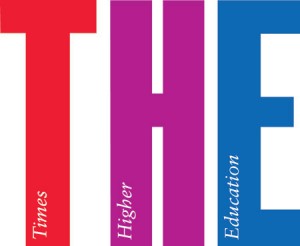 The BU research-based film we previously reported on has been highlighted today by Times Higher Education UK. Rufus Stone is part of the New Dynamics of Ageing programme and will tell the story of being gay and growing older in the British countryside. Using research findings in this way is a great way of engaging the public, creating and impact and raising the overall profile of BU. Shooting should begin in mid-July so we will have to wait to see the final result but congratularuons again to Kip Jones and the rest of the team involved.
The BU research-based film we previously reported on has been highlighted today by Times Higher Education UK. Rufus Stone is part of the New Dynamics of Ageing programme and will tell the story of being gay and growing older in the British countryside. Using research findings in this way is a great way of engaging the public, creating and impact and raising the overall profile of BU. Shooting should begin in mid-July so we will have to wait to see the final result but congratularuons again to Kip Jones and the rest of the team involved.
UK academics accused of demanding too much office space: discuss!
 The Estate Management Statistics annual report has found that academics in the UK have more office space than people working in other sectors and it will take a “cultural change” to make them use their space more efficiently. The report says that office-space norms in the UK higher education sector are “completely at odds” with those in other sectors and that there is significant of scope for rationalisation. The report also states that while other sectors have moved from the concept of private offices to shared spaces, some academics still view having their own office as the “norm for their discipline and method of teaching, and perhaps a status symbol”. The EMS recommends institutions make departments more accountable for use of space by charging them for it. What do you think about this?
The Estate Management Statistics annual report has found that academics in the UK have more office space than people working in other sectors and it will take a “cultural change” to make them use their space more efficiently. The report says that office-space norms in the UK higher education sector are “completely at odds” with those in other sectors and that there is significant of scope for rationalisation. The report also states that while other sectors have moved from the concept of private offices to shared spaces, some academics still view having their own office as the “norm for their discipline and method of teaching, and perhaps a status symbol”. The EMS recommends institutions make departments more accountable for use of space by charging them for it. What do you think about this?
Population and patient data sharing for mental health research funding available
 The MRC invites proposals for a population and patient data sharing initiative for research into mental health. Projects should exploit high-quality existing data in novel ways to advance knowledge of factors affecting addiction and mental illness and inform research for new treatments. A total budget of £1 million is available; see the MRC website for more details.
The MRC invites proposals for a population and patient data sharing initiative for research into mental health. Projects should exploit high-quality existing data in novel ways to advance knowledge of factors affecting addiction and mental illness and inform research for new treatments. A total budget of £1 million is available; see the MRC website for more details.














 Fourth INRC Symposium: From Clinical Applications to Neuro-Inspired Computation
Fourth INRC Symposium: From Clinical Applications to Neuro-Inspired Computation Writing policy briefs
Writing policy briefs Upholding Excellence: The Concordat to Support Research Integrity
Upholding Excellence: The Concordat to Support Research Integrity Today’s Documentation Will Serve Tomorrow’s Justice
Today’s Documentation Will Serve Tomorrow’s Justice ECR Funding Open Call: Research Culture & Community Grant – Application Deadline Friday 12 December
ECR Funding Open Call: Research Culture & Community Grant – Application Deadline Friday 12 December MSCA Postdoctoral Fellowships 2025 Call
MSCA Postdoctoral Fellowships 2025 Call ERC Advanced Grant 2025 Webinar
ERC Advanced Grant 2025 Webinar Horizon Europe Work Programme 2025 Published
Horizon Europe Work Programme 2025 Published Horizon Europe 2025 Work Programme pre-Published
Horizon Europe 2025 Work Programme pre-Published Update on UKRO services
Update on UKRO services European research project exploring use of ‘virtual twins’ to better manage metabolic associated fatty liver disease
European research project exploring use of ‘virtual twins’ to better manage metabolic associated fatty liver disease